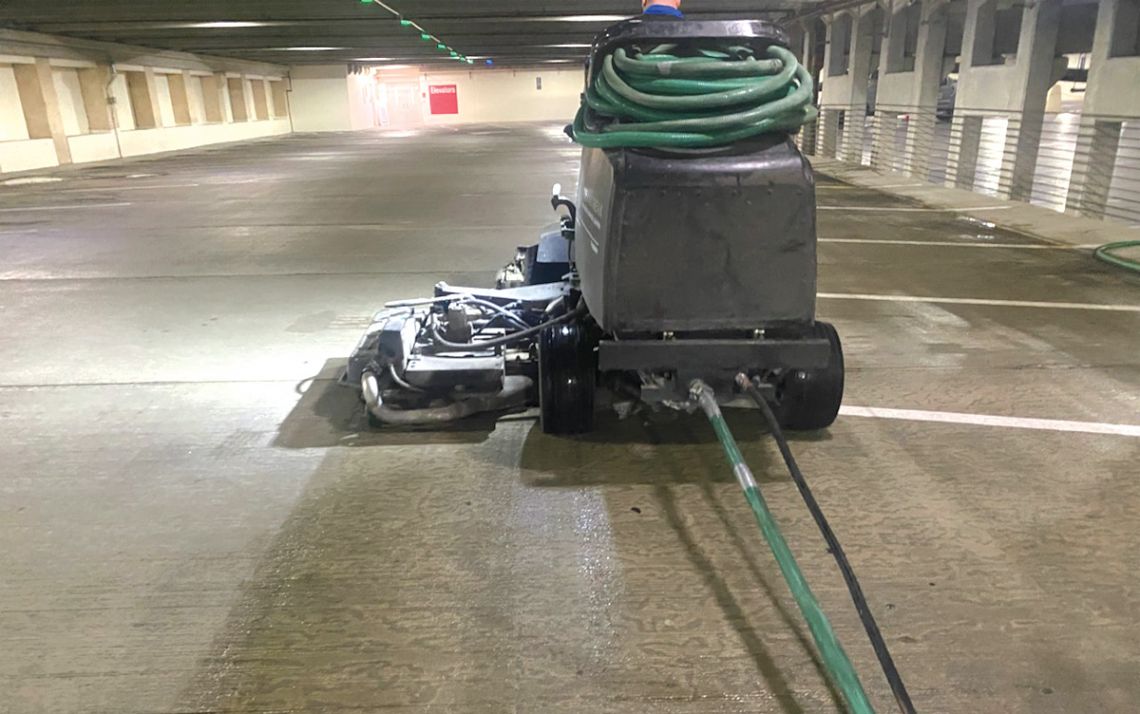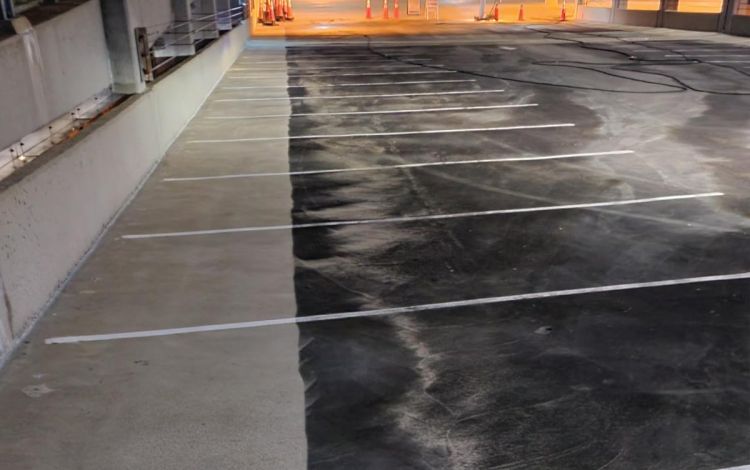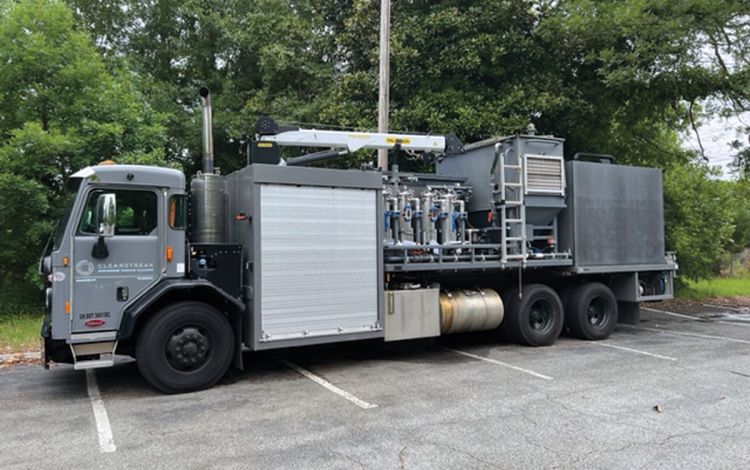Parking Deck Cleaning Underway
Eco-friendly project keeps campus beautiful and is environmentally safe

A two-month project to deep clean three of Duke’s largest parking decks will wrap up in August with Parking Garage 2.
The process by Cleanstreak uses 70 percent less water than standard pressure washing and ensures most water used can be recycled, treated and used again.
“We wanted to enhance the appearance of our garages and cleanliness is an important factor,” said Carl DePinto Duke’s transportation director.

The project began in June in Parking Garage 1 on Trent Drive, followed by Parking Garage 3 at Fulton Street and Pratt Street. The last garage at Erwin Road, Fulton Street and Elba Street will be complete by Aug. 12, with little disruption to available parking spaces. Every five years, each parking garage on campus is cleaned as part of routine maintenance.
Cleanstreak deploys a technique that doesn’t leave behind puddles, soap or other chemicals that could run off into the soil, water sources or otherwise cause harm to the environment. Instead, the company uses a 2,700-gallon recycled water tank that simultaneously vacuums the pressurized water used to clean the pavement back into the truck.
That reclaimed water is treated and about 90 percent of it can be recycled and used again without leaving behind runoff dirt or grime. The process can clean about 100,000 square feet per day without heavy environmental impacts. In January 2022, the company reported its process saved about 4.2 million gallons in 2021.
Since 2010, Duke has increased the use of non-potable water to heat and cool campus systems, while achieving a 40 percent reduction in potable water per gross square foot since 2006, according to the Duke Office of Sustainability.
Send story ideas, shout-outs and photographs through our story idea form or write working@duke.edu.